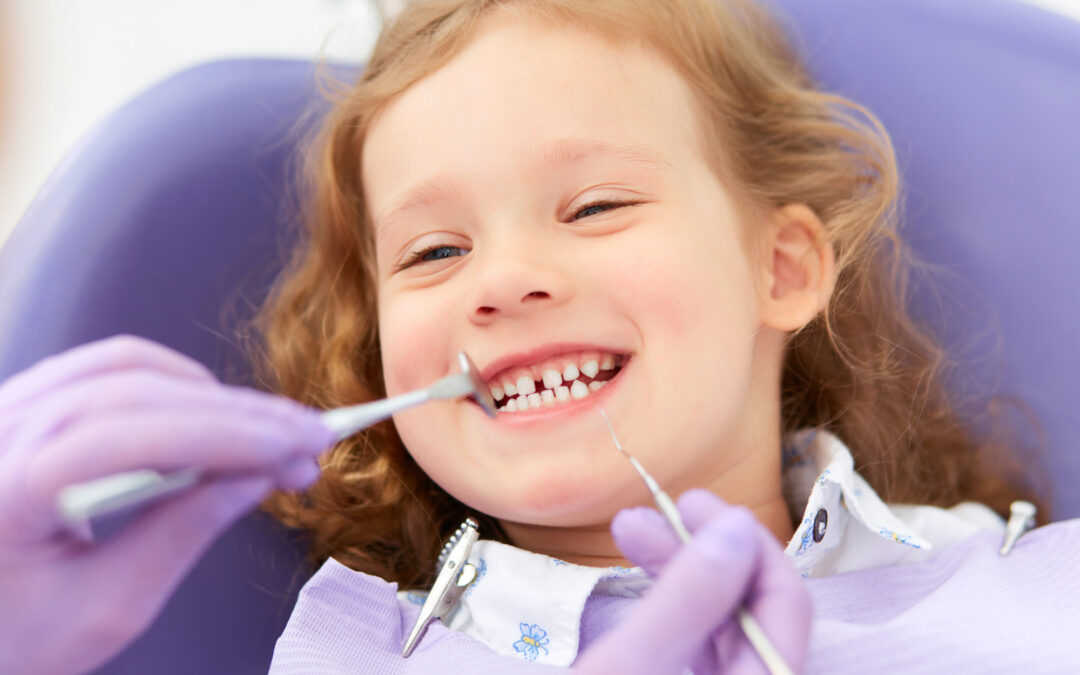Dental emergencies in children can be distressing for both parents and their little ones. Whether it’s a knocked-out tooth during a sports game or sudden toothache at night, knowing how to respond promptly and effectively is crucial.
Understanding common pediatric dental emergencies, their causes, and appropriate actions can help parents navigate these situations with confidence and ensure their child receives timely care.
Types of Pediatric Dental Emergencies:
- Knocked-Out Tooth (Avulsion): Accidents, falls, or sports injuries can lead to a permanent tooth being knocked out. Quick action is essential to increase the chances of saving the tooth.
- Tooth Fractures: Fractures can occur due to trauma or biting on hard objects. The severity of the fracture varies, ranging from minor chips to significant cracks involving the nerve.
- Toothache: Persistent tooth pain can indicate various issues such as tooth decay, infection, or abscess. It can be accompanied by swelling and fever, indicating an urgent need for dental attention.
- Object Lodged Between Teeth: Children may get objects stuck between their teeth while eating or playing, causing discomfort and potential damage to the gums and teeth.
- Soft Tissue Injuries: Injuries to the lips, tongue, or cheeks can occur from falls or accidents, leading to bleeding and discomfort.
Causes of Pediatric Dental Emergencies:
- Trauma from falls, sports, or accidents.
- Poor oral hygiene leads to tooth decay and infections.
- Biting on hard objects or foods.
- Neglecting routine dental check-ups and preventive care.
- Developmental issues affecting tooth alignment and eruption.
What Parents Should Do:
Stay Calm: Children may panic during dental emergencies, so it’s crucial for parents to remain calm and reassure them.
Assess the Situation: Evaluate the severity of the injury or pain. If there is bleeding, swelling, or signs of infection, seek immediate dental care.
Handle a Knocked-Out Tooth Carefully: Hold the tooth by the crown (top part) and avoid touching the root. Rinse it gently with water if dirty, and try to reinsert it into the socket if possible. If not, place it in a container of milk or saliva and seek dental care immediately.
Manage Pain: Use over-the-counter pain relievers appropriate for your child’s age to alleviate discomfort until dental treatment is available.
Control Bleeding: Apply gentle pressure with clean gauze to stop bleeding from the mouth or soft tissues. If bleeding persists, seek medical attention.
Keep Emergency Contacts Handy: Have the contact information of your child’s dentist or an emergency dental clinic readily available. Make sure the professional you have selected is the best in dentistry at Windermere.
Prevention is Key:
While some dental emergencies are unavoidable, many can be prevented with proper precautions:
- Encourage wearing mouthguards during sports activities.
- Teach good oral hygiene habits from a young age.
- Avoid chewing on hard objects like ice or pens.
- Schedule regular dental check-ups for preventive care and early intervention.
Pediatric dental emergencies can be frightening, but with preparedness and swift action, parents can effectively manage these situations and ensure the best possible outcomes for their children’s dental health.
By understanding common emergencies, taking preventive measures, and knowing when to seek professional help, parents play a crucial role in safeguarding their child’s oral well-being. Remember, prompt intervention can make all the difference in preserving a healthy smile for years to come.
